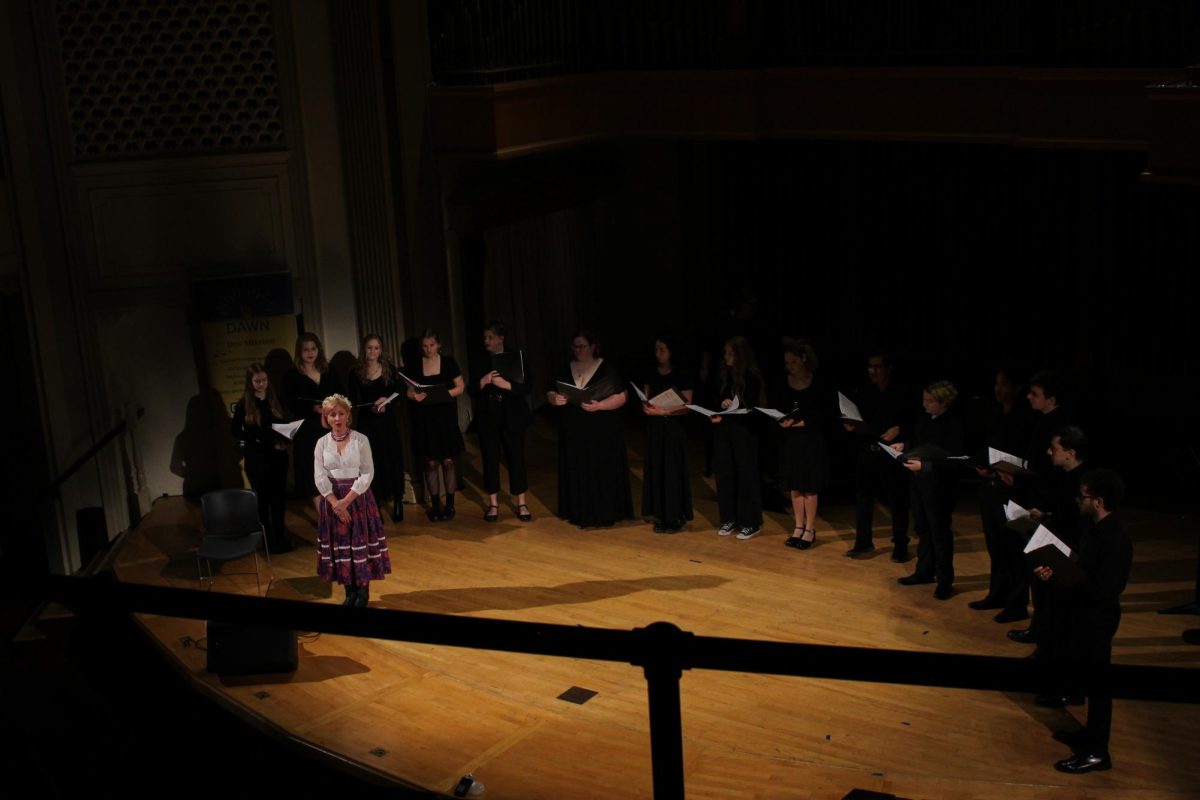Katie Paysinger
News editor
It is a crisis across the nation: colleges and universities replacing full-time, tenure professors with more temporary positions in order to cut costs and eliminate the need to provide benefits. However, Linfield is not facing the same fate.
 “Nationally, [hiring too many adjuncts] is a matter of serious concern,” Dean of Faculty Victoria McGillin said. “However, that is not the case at Linfield.”
“Nationally, [hiring too many adjuncts] is a matter of serious concern,” Dean of Faculty Victoria McGillin said. “However, that is not the case at Linfield.”
The majority of adjuncts at Linfield teach in the music, health and human performances and education departments. This is because these departments offer a wide variety of classes that require more attention from professors.
“In music, for example, we might bring in an adjunct to teach French horn to three or four students,” McGillin said. “There isn’t a need there to create a position line for a full-time professor.”
To become a full-time professor, the person must be an assistant professor for three to seven years. Typically, after they have acquired enough portfolio material, such as student evaluations, colleague recommendations and notes from their supervisors, they can present to the deans of faculty, the president and, ultimately, the Board of Trustees to apply for tenure. If granted, the professor may teach until he or she feels the need to stop.
“I’m fond of quoting the saying that there should never be any surprises when it comes to being granted tenure,” McGillin said.
A tenured professor receives benefits and higher pay compared to other positions. Concerns among many who do not have the guarantees a professor has are the lack of benefits and low wages granted to adjunct
professors.
“Financially, it would be impossible to pay all adjuncts higher wages,” Marvin Henberg, former dean of faculty and current professor of philosophy, said. “If they would, we would hire more full-time faculty.”
A majority of adjuncts are teaching at more than one school to make a decent living, or holding other jobs in the community.
“There are some places where you really want adjuncts,” Henberg said. “It enhances the program.”
Most adjuncts at Linfield are brought in due to acquiring an expertise in their field and are coming to teach one or two courses a semester. Other situations require adjuncts, such as when a professor is on sabbatical or someone has retired, and the department needs to take on courses.
“Usually people don’t do it for the money,” McGillin said. “Sometimes they have already retired or their spouse [also] works at the college.”
Having just recently reacquired the title of visiting instructor of philosophy, Seth Tichenor has been an adjunct at Linfield and other institutions for many years. In addition to teaching overtime this year, Tichenor is teaching in Linfield’s Department of Continuing Education.
“I know a number of adjuncts [at Linfield] who have other jobs,” he said. “Given what you get paid, you have to have another source of income. [Universities] start to create an addiction to fill their open spots with adjuncts only, but what they end up creating is this huge class of migrant workers.”
He said he believes there are solutions to solving the problems of low pay and no benefits for adjuncts, but they are more encompassing solutions within the whole university system structure, not just within one institution.
McGillin said, to a student the instructor is just an instructor. They wear no sign indicating whether they are an assistant, associate or adjunct.
“I really think that Linfield is as fortunate with our adjuncts as we have been fortunate with our faculty,” Henberg said. “And we have excellent adjuncts.”






